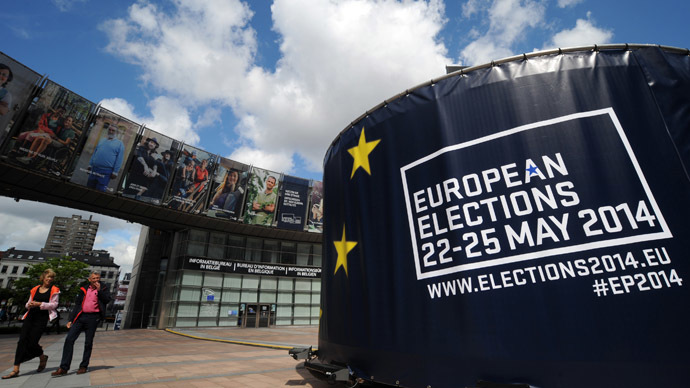
Over the last decades, populism and technocracy have attracted a great deal of public attention and generated a lively scholarly debate. As it has recently been argued, they have emerged as the two dominant discourses on the European political scene. As the 2014 European elections clearly showed, even traditional, mainstream political parties increasingly rely on either or both these narratives. One insightful example is the discursive practices of Matteo Renzi’s Democratic Party during the Italian electoral campaign.
After his rise as party leader and then Italy’s youngest ever Prime Minister, Renzi has become a favourite of the international press. As early as 2010, when he was still mayor of Florence, the Tuscan politician proved himself an extremely skilled communicator. His idea of ‘rottamare’ (‘scrapping’) the entire political class had an extremely wide impact on public opinion and soon became a slogan for all those who wanted to contest the status quo in Italian politics. The growing support he received from the public convinced him to run for his party’s leadership primaries in 2012 and then, successfully, in 2013. Nowadays, Renzi’s PD embodies an arguably renewed organisation. The internal opposition has been gradually marginalised and the re-compacted majority has developed a political discourse based on pragmatism, hope for the future and the need for change. In particular, one can observe how the PD has gradually assimilated populist and technocratic discursive strategies by examining the ways in which it deals with a key issue such as the European Union.
The populist mode. According to a growing body of literature, typical examples of populist discursive practices include the reliance upon Manichean oppositions, romanticised and essentialist visions of the people, appeals to the multitude whilst excluding others and extreme simplification and moralisation (Wodak 2003).
This populist mode is first of all evident in the PD’s portrayal of Europe as the arena for a moral confrontation, in which Italy and the PD play a crucial role. When arguing, for example, that “there is a struggle between those who play with the Italian future evoking terror and betting on defeat, and those who think, we have a thousand of limits but let’s try to change things” (Renzi 2014), Renzi effectively uses a typical scapegoating strategy. In other words, by appealing to national pride, he unifies and mobilises the ‘responsible’ voters against the minority of Euro-sceptics (embodied by Beppe Grillo and paradoxically defined as the only populists on the political scene).
Similarly, populist strategies are also used to depict Europe as an enemy, an immoral and inefficient political actor or an unfair partner (“Europe cannot instruct us on how to produce one of our textures and then, when a slaughter happens in our waters, look the other way”, Renzi 2014 a). In this narrative, the EU is personified and used to define Italy, by contrast, as a positive agent. In this case, the ‘evil’ minority is represented by the Brussels’ establishment, dwelling on both nationalism and anti-elite feelings. Italy and its voters are victimised and called to occupy their rightful role, again through an extreme simplification of political reality and a moralising, emotional rhetorical style.
The technocratic mode. Two other distinctive discursive representations of the EU build, instead, on a technocratic mode. In both of them, the Union is reified and presented as a political arena or an administrative mean, through a typically functional argumentative style. Among the most common technocratic discursive practices are the use of legal and technical language, the emphasis on management, the scientifisation of socio-political phenomena and the (self)-representation of political actors as technical, impartial, neutral and interest-free (Mc Kenna and Graham 2000).
The presence of these patterns in the PD’s discourse is quantitatively limited, but still extremely relevant, most evidently when portraying the Union as the only solution to Italian economic problems. Adopting a highly managerial style, the PD’s new discursive coalition makes clear that the Brussels-backed austerity measures are both fair and necessary (“We must face the reality of things: Europe is the solution to our problems”, Renzi 2014 a). In doing so, it ‘scientifises’ politically controversial opinions on the economic crisis and praises the rise of a competent European elite.
Secondly, Europe is also often presented as the only arena where the much-needed Italian reforms could possibly be implemented. By embracing a rather partial interpretation of the country’s problems, this narrative strongly stresses Italy’s virtuous conduct as an accountable member-State and a force able to drive change. In doing so, it explicitly draws a connection between the European electoral contests, Italy’s internal politics and the pivotal role of the modernised PD. Once more, political issues are economicised and neutralised and the stress is put on credibility and competences.
Interestingly, arguments from the two narratives were very often combined in the same source and by the same actor. These significant shifts in the public discourse of the most electorally successful of the European centre-left organisations evoke reflections on the tendency of main-stream parties to rely on the populist and technocratic discourses, both of which are potentially alien to party-based representative democracy.
References:
Mc Kenna B. and Graham, P. (2000) ‘Technocratic discourse: A primer’ in Journal of Technical Writing and Communication, 30, (3): 219-247.
Renzi, M. (2014), public speech in Bari, 20th May, available at www.partitodemocratico.it.
Renzi, M. (2014), public speech in Florence, 9th May, available at www.partitodemocratico.it.
Wodak, R. (2003), ‘Populist discourses : The rhetoric of exclusion in written genres’, in Document Design : Journal of Research and Problem Solving, 4:133-148.









No Comment